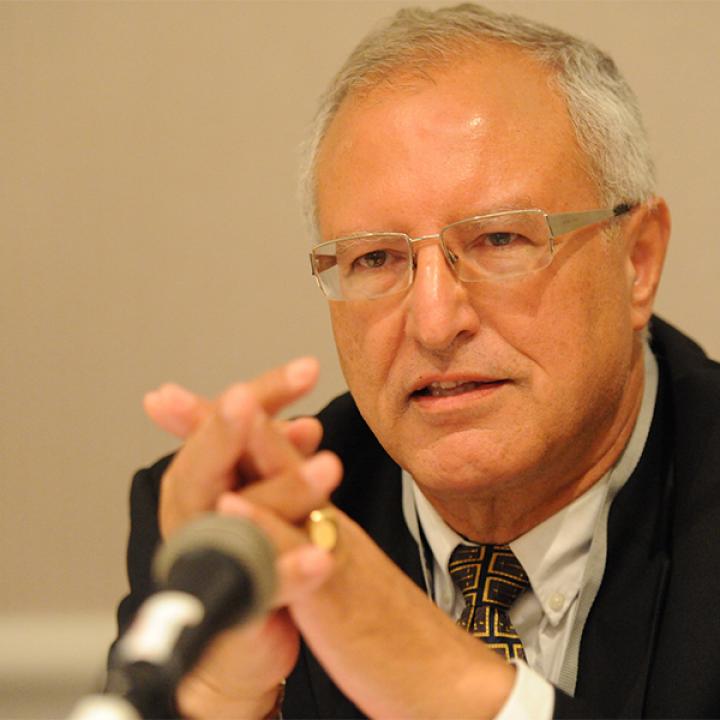
- Policy Analysis
- Conference Reports
Israeli-Palestinian Relations: Top-Down and Bottom-Up

Israeli and Palestinian perspectives on recently collapsed peace talks offer hope for eventual progress, though publics and leaders on both sides will need to overcome barriers of mistrust and misunderstanding.
The intensive, nine-month Israeli-Palestinian talks were not a waste of time, despite their eventual collapse, Brig. Gen. Michael Herzog (IDF, ret.) told attendees at The Washington Institute's 2014 Weinbeerg Founders Conference on May 8. The later rounds of negotiations were "the most serious work done by the two parties since 2000," Herzog said. "I do not believe that you can single out one actor, one element, and say, 'We failed because of that.'"
A member of Israel's negotiating team, Herzog identified key mistakes made by Israeli and Palestinian leaders during the negotiations, including Israel's choice to release prisoners, rather than to suspend settlement construction, and the Palestinian pursuit of unilateral tracks alongside bilateral talks.
The Fatah-Hamas reconciliation deal was "particularly damaging," Herzog said. The announcement came "one day after the best meeting we've had with the Palestinians for many months, where we came up with new ideas. All of us, Israelis, Palestinians, and Americans who were in the room felt that we were on the verge of a breakthrough. We might have a deal. And the Palestinians specifically asked us for another meeting the next day to try and secure the deal. The next day we were all surprised, Israel and the U.S., by them signing a deal with Hamas."
Mohammed Dajani, a professor of political science at al-Quds University who led a recent Palestinian delegation to Auschwitz, identified the lack of communication between publics and governing elites - "between those at the top and those at the bottom" - as a common barrier to peace and progress in the Middle East. In the Israeli-Palestinian arena, Dajani said, this disconnect between people and their leaders creates a climate of suspicion and distrust that fosters ill-will toward other groups.
"Even if you want to give the other [side] a present," Dajani said, "he will look into it and ask, 'Where's the bomb?'"
Overcoming this climate of mistrust will require actions both from the grassroots and leaders. Alongside negotiations between governments, public opinion must be prepared to accept peaceful coexistence. "Both leaders should understand, and should let their people understand, that there will be a price for peace. This price, both will have to pay," Dajani said. "We cannot keep saying that the Jews have no rights in Palestine, and at the same time, Jews cannot keep saying that we do not have any rights in Palestine. We have to recognize the rights of each other."
Mohammed Dajani is a professor of political science at al-Quds University. He led a recent Palestinian delegation to Auschwitz.
Brig. Gen. Michael Herzog (IDF, ret.) is the Milton Fine international fellow at The Washington Institute.
David Pollock, who moderated this discussion, is Kaufman fellow at The Washington Institute./policy-analysis/view/2014-weinberg-founders-conference





